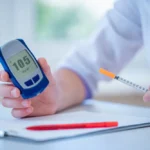The thyroid-stimulating hormone (TSH) may not be something you’ll talk about at dinner parties. Still, if you’re navigating thyroid disease, it’s a silent hero—and sometimes a villain—underpinning every diagnostic decision and treatment plan. By the end of this guide, you’ll have a clear, friendly understanding of how TSH thyroid function works, why it’s important, and how it informs your care.
What Is TSH—and Why Should You Care?
TSH is a hormone secreted by your pituitary gland, perched at the base of your brain. Its main job? To tell your thyroid gland to produce two key hormones: T3 and T4, which control your metabolism, energy, heart rate, and temperature regulation. This is all part of a classic negative feedback loop: low thyroid hormones spark more TSH; high thyroid hormones dial it back.
This delicate balancing act is essential—even subtle changes can have a major impact on how you feel and how your body functions. That’s why thyroid doctors in NYC often rely on TSH as a starting point when patients come in with symptoms like fatigue, weight gain, or brain fog.
Understanding TSH Numbers—What’s Normal, What’s Not
Typical reference labs peg a normal TSH thyroid range between 0.4–4.0 mIU/L. However, some prefer a slightly narrower band depending on age, sex, and health status.
- High TSH: Often signals hypothyroidism (an underactive thyroid). You might feel tired, cold, gain weight, or struggle with focus.
- Low TSH: Typically indicates hyperthyroidism (an overactive thyroid), with symptoms like rapid heartbeat, anxiety, and weight loss.
However, TSH alone doesn’t tell the full story. It’s best interpreted alongside T3, T4, and sometimes thyroid antibodies or imaging. At a leading thyroid treatment center NYC, these tests are combined for a more accurate diagnosis.
Diagnosing Thyroid Disorders: The TSH Lens
For those wondering what is thyroid disease, it’s any condition where your thyroid produces too little or too much hormone. In hypothyroidism, high TSH with low T4 is a clear signal that the gland isn’t keeping up. If your TSH is elevated but T4 is still normal, that’s called subclinical hypothyroidism—often monitored before starting treatment.
When it comes to Hashimoto’s thyroiditis treatment, TSH is crucial. This autoimmune form of thyroid disease causes inflammation that slowly damages the thyroid, leading to chronic underproduction of hormones.
Many thyroid doctors in NYC will also test for thyroid peroxidase (TPO) antibodies to confirm Hashimoto’s diagnosis.
Treatment and TSH Monitoring: A Balancing Act
Once treatment begins—usually with levothyroxine, a synthetic form of T4—your provider adjusts your dosage based on TSH thyroid levels. Dosage depends on body weight, age, pregnancy, and heart health.
- Timing matters: Take it on an empty stomach—first thing in the morning or before bed—for best absorption.
- Brand consistency: Stick to the same medication brand or formulation to avoid absorption issues.
- Monitoring: Expect labs every 6 weeks at first, then every 6–12 months once stable.
At a trusted thyroid treatment center NYC like Patients Medical, your plan is personalized, and TSH is monitored alongside your symptoms—not just lab numbers.
A Few Curveballs to Watch For
The thyroid system isn’t always straightforward. A rare condition known as thyroid hormone resistance can cause high thyroid hormone levels, but without the expected drop in TSH.
Also, daily rhythms and certain medications can affect readings. This is another reason why patients often ask, “What is thyroid disease really doing to my body?” And the answer isn’t always in a single test—it’s in patterns, history, and expert interpretation.

Why TSH Matters—for You, Your Doctor, and Your Health Journey
TSH is more than a number. It helps doctors detect, monitor, and manage thyroid disease with precision. At Patients Medical, the approach goes beyond lab work—they consider your symptoms, lifestyle, and goals when creating your care plan.
For people managing Hashimoto’s thyroiditis treatment, regular TSH checks ensure hormone replacement stays in balance and symptoms remain under control.
In Summary
- TSH is the gateway to understanding thyroid disease.
- Diagnosis needs context: T3, T4, and antibodies matter.
- Treatment balances TSH with medication, lifestyle, and labs.
- Follow-up is key to catching changes early.
- Patients Medical personalizes your plan every step of the way.
Frequently Asked Questions
Q. What does TSH do in the body?
Ans. TSH (Thyroid-Stimulating Hormone) tells your thyroid to make hormones that control energy, metabolism, and body temperature. It plays a key role in managing thyroid disease and guiding proper treatment.
Q. What is a normal TSH level?
Ans. Most labs consider 0.4–4.0 mIU/L to be a normal TSH thyroid range, though ideal levels may vary by age, gender, and symptoms.
Q. What does high TSH mean?
Ans. High TSH usually means your thyroid is underactive (hypothyroidism) and may not be making enough hormones. This is often the first sign when doctors diagnose Hashimoto’s thyroiditis treatment needs.
Q. How is low TSH treated?
Ans. Low TSH caused by an overactive thyroid (hyperthyroidism) may require medication, lifestyle changes, or specialist care from experienced thyroid doctors in NYC.
Q. How does patients’ medical help with thyroid issues?
Ans. Patients Medical is a trusted thyroid treatment center NYC offering comprehensive care for those wondering what is thyroid disease, using advanced testing and integrative solutions.
Conclusion
TSH plays a central role in regulating thyroid function and overall hormonal balance. Whether levels are too high or too low, understanding your TSH thyroid results can guide effective treatment and help you feel better. With ongoing support from professionals like those at Patients Medical, you can confidently manage your condition and stay in control of your health.





